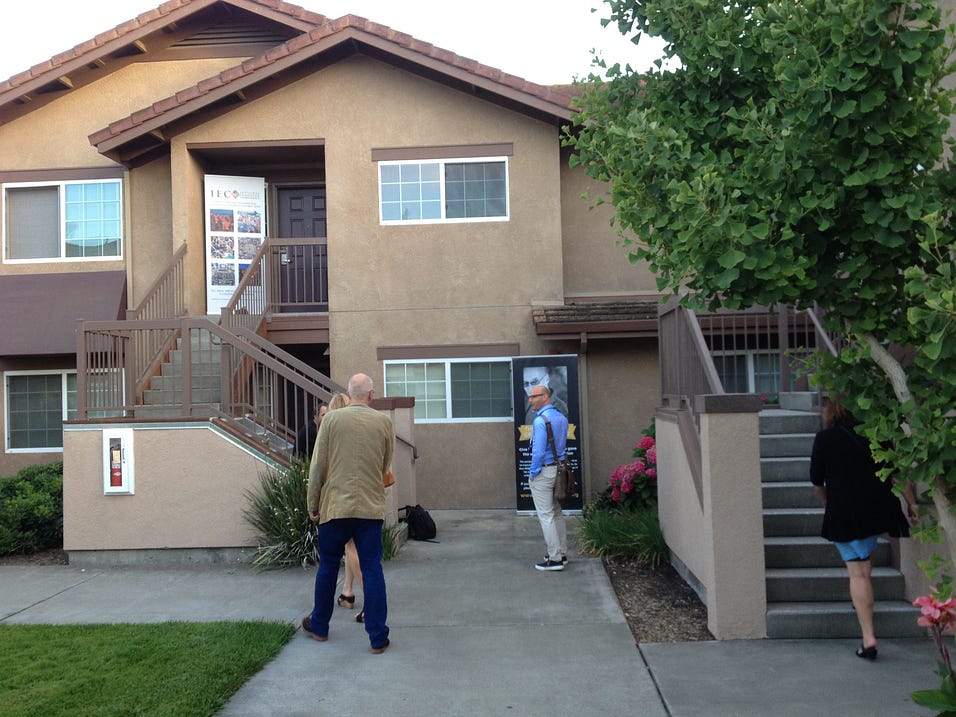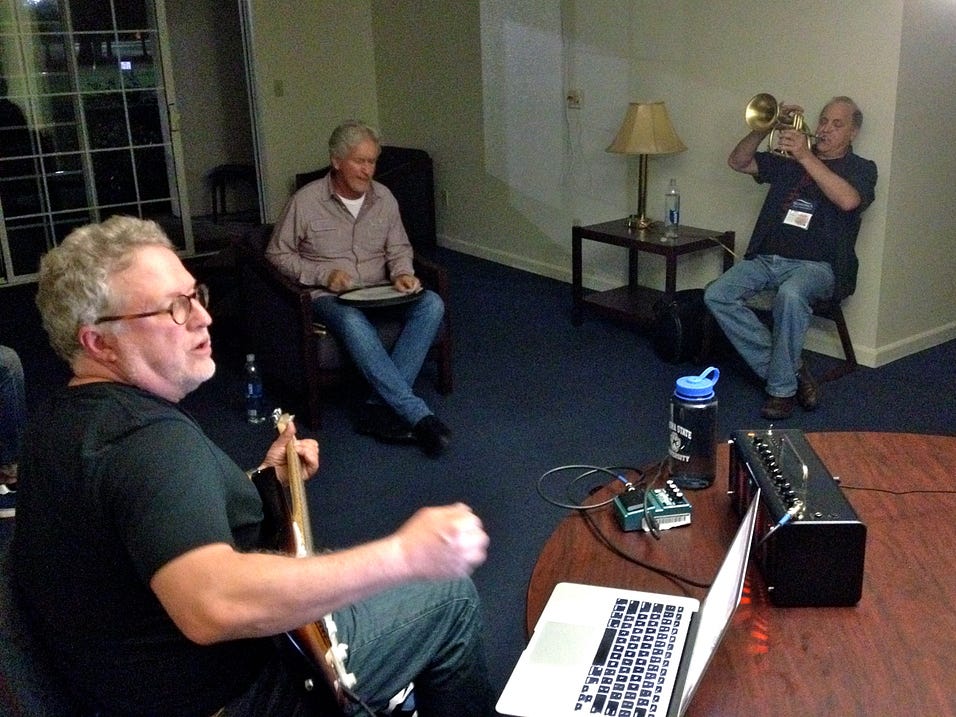 |
| ITC, I am coming! |
The Integral Theory Conference
2015 (ITC) was the fourth of its kind (after 2008, 2010, and 2013) and
was held in California, like its predecessors. This time, it took place
in Rohnert Park at the Sonoma State University (SSU), surrounded by a
beautiful campus setting with plenty of recreational opportunities.
Participants
were able to cluster together in vacant student houses, which amounted
to a bit of a village feel and infused the evenings with student party
appeal — altogether a rejuvenating experience for the global integral
family. In the evenings, people would browse different house parties,
have a beer or two (or more), and engage in conversations that you can
only have in integral circles (including topics like Integral
Methodological Pluralism, Reinventing Organizations, climate change,
meditation, post-capitalist society, NFL gossip, and plenty of silly
jokes).
 |
| Welcome to Integral Village! |
I was even able to detect the source of that ecstatic blues-jazz
improvisation noise coming from one of the participant’s village houses:
it emanated from the Integral Recovery Institute folks John Dupuy
(blues guitar) and Dr. Bob Weathers (percussion), supported by jazz
legend and professor of music Ed Sarath on trumpet. John later told me
he wants to make a recording with these guys and call the combo
“Integral Fusion.” Nice.
 | ||
| John Dupuy, Bob Weathers and Ed Sarath |
Self-Disclosure and Disclaimer
As
you can tell by now, I don’t hide the fact that my article is a pretty
subjective snapshot of this event. Nevertheless, I hope to be able to
provide some serious 3rd person reporting as well. I took some more or
less comprehensive notes of the sessions I participated in and tried to
reconstruct their meaning in hindsight as best as I could to unfold them
here for you. I missed out on some program slots, because I was busy
preparing my own presentation though. I also write from the perspective
of being one of the co-directors of the Integral European Conference,
with specific attention on the conference design principles that were
applied here. Please also note that I come from Germany where the words
“How are you?” represent a genuine question,
not a mere greeting formula — a constant source of intercultural
irritation, despite knowing better. So much for cultural conditioning… I
provide this info to help you locate the “Kosmic address” and various
background contexts from which I offer my observations and experiences.
Feel free to give me feedback on misunderstandings or share diverging
opinions.
Kommentare